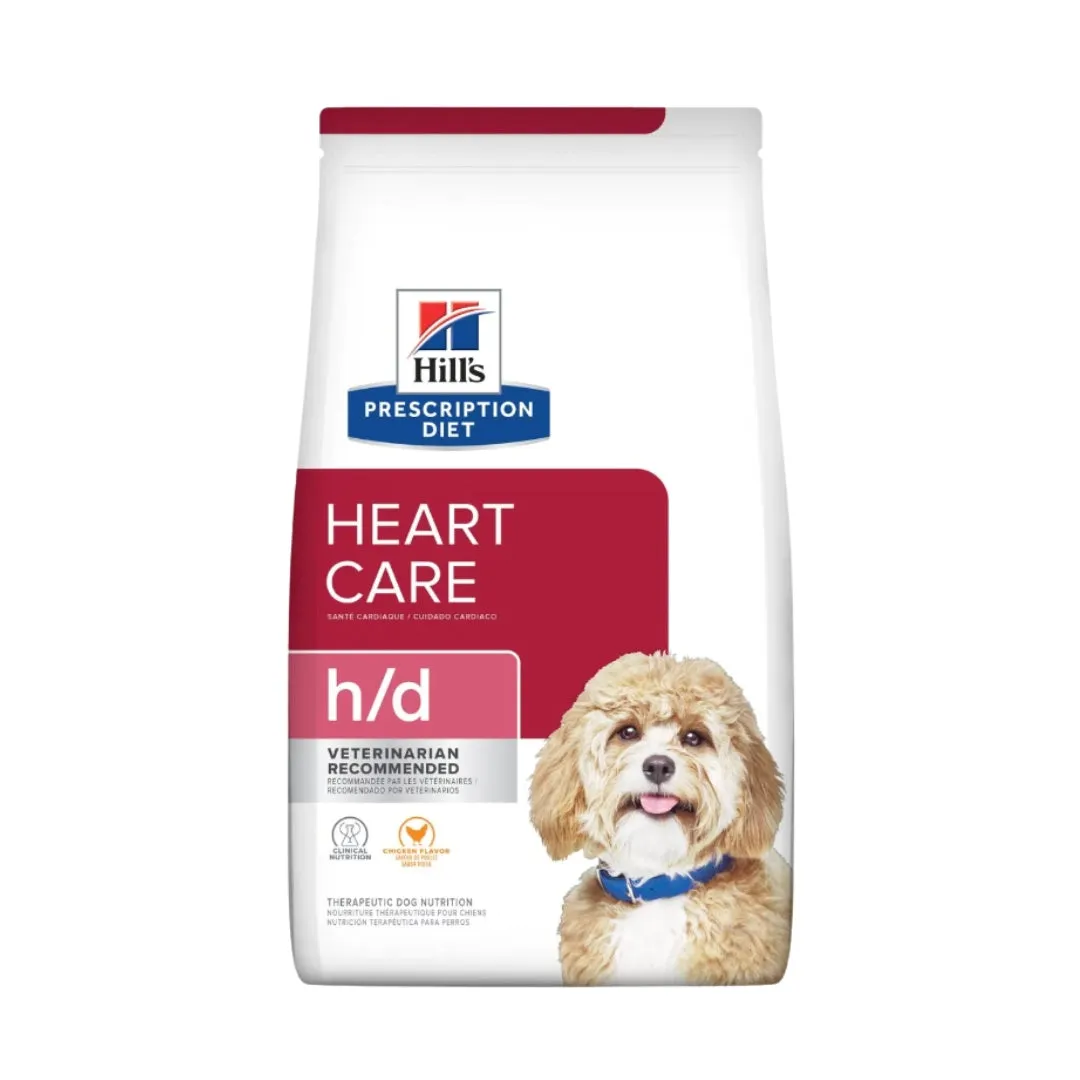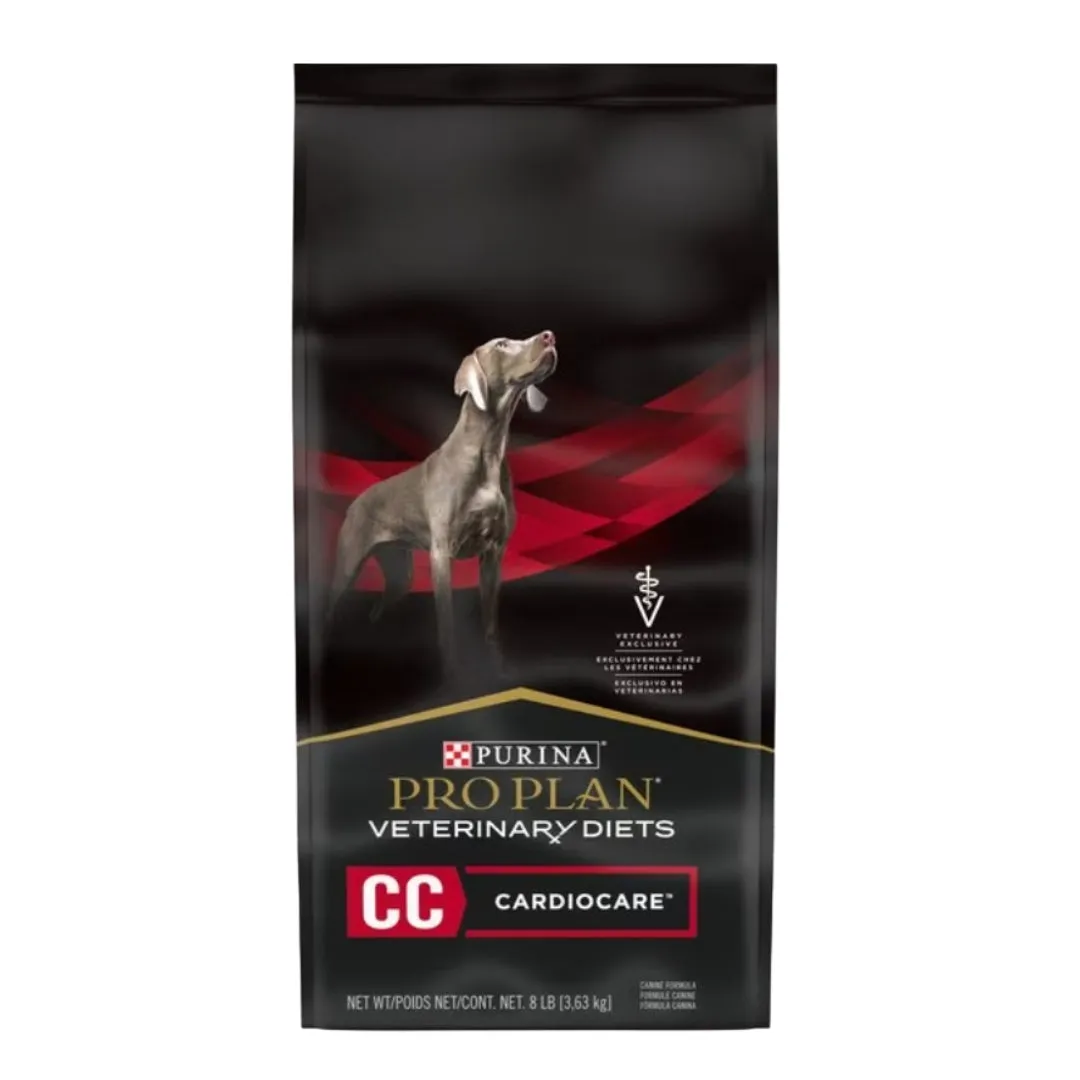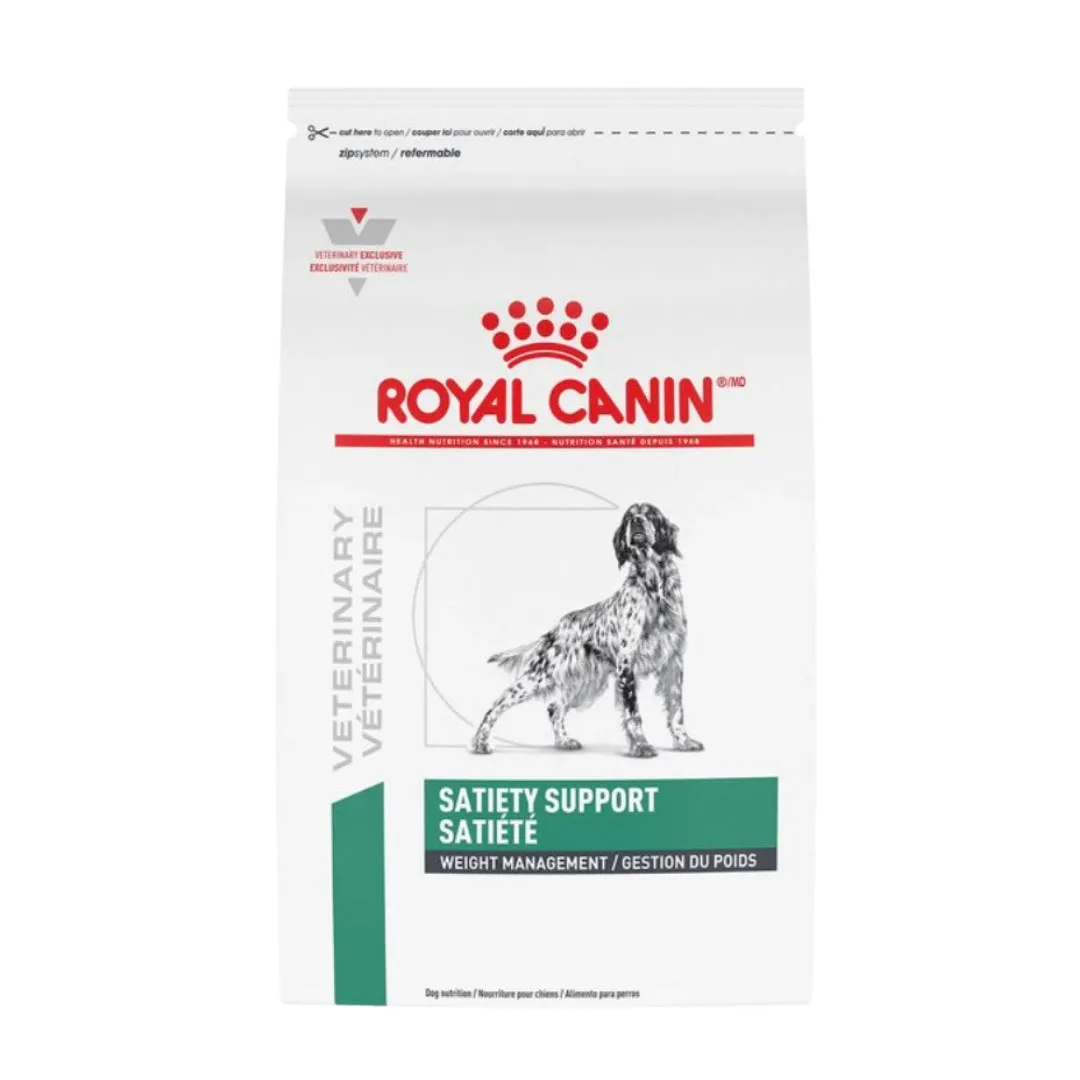Dealing with congestive heart failure (CHF) in dogs is a challenging diagnosis for any pet owner. However, with targeted nutritional support, specifically formulated diets like Hill’s Prescription Heart Care dog food, you can significantly contribute to your dog’s quality of life and manage their condition effectively. This comprehensive guide will explore canine CHF, the critical role diet plays in its management, and highlight how specialized foods, particularly Hill’s Prescription Diet Heart Care H/D, provide essential support for your furry friend’s heart health.
Understanding Congestive Heart Failure (CHF) in Dogs
Congestive heart failure (CHF) in dogs is a chronic and progressive condition arising from underlying heart disease, such as dilated cardiomyopathy, valvular heart disease, or hypertension. It occurs when the heart can no longer pump blood efficiently, leading to a buildup of fluid in various parts of the body. Understanding this condition is the first step towards effective management.
Common symptoms of CHF in dogs include persistent coughing, especially at night or after exercise, difficulty breathing (dyspnea), reduced exercise tolerance, restlessness, and a decreased appetite. If you observe any of these signs, prompt veterinary attention is crucial. Diagnosis typically involves a thorough physical examination, blood tests, chest X-rays to check for fluid accumulation, and an echocardiogram to assess heart structure and function. Treatment usually involves a combination of medications, oxygen therapy, fluid management, a specialized diet, weight management, and regular, controlled exercise. Close monitoring and continuous treatment are essential as CHF is a lifelong condition requiring ongoing care.
The Two Faces of Canine CHF: Left-Sided vs. Right-Sided
Congestive heart failure manifests in two primary forms in dogs, each affecting different parts of the body and presenting with distinct symptoms. Recognizing which type of CHF your dog has is vital for tailored treatment and dietary planning.
Left-Sided Congestive Heart Failure (LS-CHF)
In left-sided CHF, the left ventricle, responsible for pumping oxygen-rich blood to the body, fails to do so effectively. This causes blood to back up into the left atrium and subsequently into the lungs, leading to pulmonary congestion and edema (fluid accumulation in the lungs).
Symptoms typically associated with LS-CHF include:
- Coughing: Often a primary symptom, which may worsen at night or following physical activity.
- Difficulty Breathing (Dyspnea): Characterized by rapid or labored breathing due to fluid in the lungs.
- Exercise Intolerance: A noticeable reduction in the ability to engage in physical activities.
- Restlessness: Particularly at night, as lying down can exacerbate breathing difficulties.
Common causes of LS-CHF:
- Mitral Valve Disease: This is particularly common in small breeds and older dogs, where the mitral valve degenerates and fails to close properly, leading to blood leakage.
- Dilated Cardiomyopathy (DCM): More prevalent in large breed dogs, DCM causes the heart muscle to weaken and the chambers to enlarge, reducing pumping efficiency.
- Congenital Heart Defects: Conditions such as patent ductus arteriosus (PDA) or ventricular septal defects (VSD) can also lead to LS-CHF.
Right-Sided Congestive Heart Failure (RS-CHF)
With right-sided CHF, the right ventricle struggles to pump blood effectively to the lungs. This leads to blood backing up into the right atrium and then into the systemic circulation, causing fluid accumulation in the abdomen (ascites) and other parts of the body.
Symptoms commonly seen with RS-CHF include:
- Ascites: A swollen abdomen due to fluid buildup.
- Peripheral Edema: Swelling in the limbs.
- Jugular Vein Distention: Visible swelling of the neck veins.
- Exercise Intolerance: Similar to LS-CHF, but resulting from systemic rather than pulmonary issues.
Common causes of RS-CHF:
- Heartworm Disease: A significant cause in regions where heartworm is prevalent, as worms can obstruct blood flow.
- Tricuspid Valve Disease: Similar to mitral valve disease but affecting the valve on the right side of the heart.
- Pulmonary Hypertension: Increased blood pressure in the lungs can strain the right side of the heart.
Why a Special Diet is Crucial for Dogs with CHF
For dogs suffering from congestive heart failure, diet is not just about sustenance; it’s a critical component of medical management. A specially formulated diet can significantly reduce fluid retention, ease the workload on the heart, and help maintain overall health.
The Importance of Nutritional Management
A key aspect of managing canine CHF is a low-sodium diet, which helps minimize fluid retention and alleviate stress on the heart. Additionally, a diet rich in high-quality protein helps maintain vital muscle mass, supporting overall organ function, including the heart. Antioxidants, like vitamins E and C, are also crucial for protecting heart cells from further damage. Diuretic medications, such as Furosemide, are frequently prescribed to complement dietary changes by actively removing excess fluid and sodium from the body. It is paramount to work closely with your veterinarian or a veterinary cardiologist to determine the most appropriate diet based on your dog’s specific condition, the underlying cause of their CHF, and their overall health profile.
Key Dietary Considerations for Canine Heart Health
When selecting a diet for a dog with CHF, several nutritional characteristics are essential to consider. These guidelines help to ensure the food provides therapeutic benefits without adding undue strain on the compromised heart.
- Low Sodium: This is perhaps the most critical factor. A diet low in sodium helps to prevent fluid retention, which is a hallmark of CHF, thereby reducing the heart’s workload.
- High-Quality Protein: Adequate, high-quality protein is necessary to maintain muscle mass and support vital organ function. This helps prevent muscle wasting often seen in advanced heart disease (cardiac cachexia).
- Moderate to Low Fat: While some healthy fats are essential, a diet that is not excessively high in fat can help manage weight and reduce the overall metabolic burden on the heart.
- High Antioxidants: Nutrients such as vitamins E and C, and other antioxidants, help combat oxidative stress and protect heart cells from damage caused by inflammation.
- High Fiber: Sufficient fiber content can aid in regulating bowel function and maintaining firm stools, which can be beneficial for dogs on certain medications or those with reduced activity.
- Low Phosphorus (if kidney issues are present): Some dogs with CHF may also have co-existing kidney issues. In such cases, a diet low in phosphorus is crucial to support renal health.
- Taurine and L-Carnitine: These amino acids are vital for heart muscle function. Deficiencies, particularly taurine, have been linked to dilated cardiomyopathy (DCM) in some breeds. Supplementation or diets rich in these nutrients may be recommended by your vet.
Hill’s Prescription Heart Care Dog Food: A Detailed Look at H/D
When it comes to specialized nutrition for dogs with heart conditions, Hill’s Prescription Diet Heart Care H/D stands out as a veterinarian-recommended formula designed to support overall cardiac health. It’s often a cornerstone of dietary management for dogs diagnosed with CHF.
Introduction to Hill’s H/D
Hill’s Prescription Diet H/D Heart Care is a therapeutic diet specifically formulated to help manage canine heart disease. It’s a prescription-only food, meaning it must be recommended and overseen by a veterinarian. This ensures that it’s appropriate for your dog’s specific condition and stage of heart disease. The primary goal of H/D is to reduce the workload on the heart and support cardiovascular function through carefully controlled nutrient levels.
 Hill's Prescription Diet Heart Care H/D dog food packaging
Hill's Prescription Diet Heart Care H/D dog food packaging
Key Benefits and Ingredients
Hill’s Prescription Diet H/D is crafted with a precise blend of ingredients to address the unique needs of a dog with CHF. Its formulation directly targets the nutritional considerations discussed earlier:
- Controlled Sodium Levels: H/D features significantly reduced sodium levels compared to maintenance dog foods. This is critical for minimizing fluid retention and managing hypertension, thereby easing the burden on the heart.
- High-Quality Protein: The diet provides easily digestible, high-quality proteins to help maintain muscle mass without overworking the kidneys (unless a specific kidney diet is also required). This is crucial for preventing cardiac cachexia.
- Essential Amino Acids: It contains L-carnitine and taurine, two amino acids vital for heart muscle function. These help support myocardial contractility and overall heart health, which is especially important for breeds prone to DCM.
- Antioxidants: H/D includes a blend of antioxidants to help neutralize free radicals and protect heart cells from oxidative damage, contributing to long-term heart health.
- Optimal Fat and Calorie Content: The fat and calorie levels are carefully balanced to help maintain an ideal body weight. Obesity can place additional strain on a compromised heart, so weight management is a key aspect of CHF care. For dogs needing more specific weight loss, other formulas like Hill’s Prescription Diet R/D might be considered in consultation with your vet.
How H/D Supports Heart Health
Hill’s H/D works synergistically with medications to support a dog’s heart. By controlling sodium, it helps manage fluid balance throughout the body. The inclusion of key amino acids and antioxidants strengthens the heart muscle and protects it from cellular damage. Its balanced nutritional profile ensures that the dog receives all necessary nutrients without any component adding undue stress to the cardiovascular system. The precise formulation aims to slow the progression of heart disease and improve the dog’s comfort and activity levels. This proactive dietary approach, alongside regular veterinary care, can make a significant difference in your dog’s journey with CHF.
When is Hill’s H/D Recommended?
Hill’s Prescription Diet Heart Care H/D is typically recommended for dogs diagnosed with various forms of heart disease, including early to advanced stages of congestive heart failure. It’s important to remember that this is a veterinary therapeutic diet and requires a prescription from your veterinarian. They will assess your dog’s specific cardiac condition, overall health, and any co-existing medical issues to determine if H/D is the most appropriate dietary choice. Regular check-ups with your vet will also ensure that the diet continues to meet your dog’s evolving needs.
Other Top Veterinary Diets for Canine Heart Health
While “hill’s prescription heart care dog food” is a leading choice, several other veterinary diets also provide excellent support for dogs with heart conditions. These options offer similar benefits, often requiring a prescription and veterinary oversight.
Royal Canin Veterinary Diet: Early Cardiac
Royal Canin’s Early Cardiac formula is another highly regarded option specifically designed to support heart function. It features added EPA and DHA omega-3 fatty acids, known for their anti-inflammatory properties and cardiovascular benefits, alongside a controlled low sodium content. This diet aims to support the heart during the early stages of cardiac disease. Like Hill’s H/D, it requires a prescription from your veterinarian.
Purina Pro Plan Veterinary Diets: CC CardioCare High Protein
Purina Pro Plan Veterinary Diets offers CC CardioCare High Protein, formulated to support optimal cardiac function. This diet incorporates a blend of specific amino acids and fatty acids designed to maintain healthy heart structure and function. It targets nutritional needs related to various cardiac conditions and is also available by veterinary prescription.
 Purina Pro Plan Veterinary Diets: CC CardioCare High Protein
Purina Pro Plan Veterinary Diets: CC CardioCare High Protein
Weight Management Considerations
For dogs with CHF who are also overweight or obese, managing their weight is paramount. Excess weight puts additional strain on an already compromised heart. In such cases, your veterinarian might recommend a diet that combines cardiac support with weight management. Examples include:
- Hill’s Prescription Diet: Weight Management R/D: This clinical nutrition is formulated to help reduce body fat, often with the goal of achieving a healthy weight within a few months, while keeping the dog satisfied.
- Royal Canin: Canine Satiety Support: This diet is designed to help dogs lose weight safely and effectively. It includes a special blend of fibers that promote satiety, helping dogs feel full longer and manage their caloric intake.
These weight-focused diets are also prescription-only and should be used under veterinary guidance to ensure they meet both the cardiac and weight management needs of your dog.
 Royal Canin Canine Satiety Support dog food bag
Royal Canin Canine Satiety Support dog food bag
Foods to Avoid for Dogs with Congestive Heart Failure
Just as important as choosing the right food, knowing what to avoid can prevent complications and improve your dog’s heart health. If your dog has congestive heart failure, certain foods and ingredients can exacerbate their condition.
It is crucial to steer clear of foods high in sodium. Excess salt can lead to dangerous fluid retention and significantly worsen the strain on your dog’s heart. This includes many common human foods and treats such as processed deli meats, most cheeses, canned foods with added salt, and table scraps like chips, fast food, or heavily seasoned leftovers. Even some commercial dog treats can contain excessive sodium, so always check labels carefully.
Additionally, avoid high-fat foods that can contribute to obesity, placing further stress on the cardiovascular system. Fatty cuts of meat, fried foods, and certain rich snacks should be excluded from their diet.
A particularly important consideration for dogs with CHF, especially those with dilated cardiomyopathy (DCM), is to avoid grain-free diets unless specifically recommended by your veterinarian. Recent research has linked some boutique, exotic, or grain-free (BEG) diets to taurine deficiency-associated DCM in certain breeds. While taurine and L-carnitine supplementation may be required for some CHF dogs, it’s essential to discuss this with your vet rather than making dietary changes based on trends. Always opt for low-sodium, heart-healthy diets specifically recommended by your veterinary professional.
Complementary Care: Oxygen Therapy for Dogs with CHF
Beyond specialized nutrition, supplemental oxygen therapy can be a vital component in managing the symptoms of congestive heart failure in dogs. It provides significant relief for dogs experiencing respiratory distress due to fluid in the lungs.
Supplemental oxygen works by increasing the concentration of oxygen in the air your dog breathes. This often helps to alleviate the severe symptoms of CHF, particularly difficulty breathing. By making breathing easier, oxygen therapy can reduce the workload on the heart, as the heart doesn’t have to work as hard to pump oxygenated blood throughout the body.
Oxygen therapy typically involves using an oxygen concentrator, a device that removes nitrogen from ambient air to deliver a higher concentration of oxygen. This oxygen is then delivered to your dog through various methods, such as an oxygen chamber or a specialized pet oxygen mask. Companies like Pawprint Oxygen offer portable oxygen kits for dogs, providing everything needed to administer oxygen at home when and where your dog needs it most. This can be particularly helpful during acute crises or for ongoing support to improve your dog’s comfort.
 A dog comfortably resting inside a purevent oxygen chamber
A dog comfortably resting inside a purevent oxygen chamber
Finding the Right Fit: Tailoring Your Dog’s CHF Diet
The journey of managing congestive heart failure in your dog is highly individual, and finding the best dietary approach requires careful consideration and collaboration with your veterinary team. While “hill’s prescription heart care dog food” is an excellent starting point, tailoring the diet to your dog’s specific needs is paramount.
Consulting Your Veterinarian
The most critical step in establishing a diet plan for a dog with CHF is to consult your veterinarian or a veterinary cardiologist. They will conduct a comprehensive evaluation of your dog’s heart condition, overall health, and any concurrent diseases. Based on this assessment, they can recommend the most suitable prescription diet, such as Hill’s Prescription Diet Heart Care H/D, or suggest a combination of dietary adjustments and supplements. Never introduce a therapeutic diet or supplements without professional veterinary guidance.
Monitoring and Adjustments
Once a diet plan is in place, continuous monitoring is essential. Your vet will likely schedule regular check-ups to assess your dog’s response to the diet and medication. This may include monitoring weight, activity levels, respiratory rate, and potentially conducting follow-up blood tests or echocardiograms. Dietary adjustments might be necessary as your dog’s condition evolves. For instance, if your dog develops arthritis alongside CHF, a specialized diet might be needed, and you could explore options like best dog food for dogs with arthritis.
Breed Predispositions and CHF
It’s also important to be aware that certain dog breeds are more predisposed to CHF due to genetic factors and breed-specific health concerns. Breeds such as Cavalier King Charles Spaniels, Miniature and Toy Poodles, Dachshunds, Doberman Pinschers, Great Danes, Boxers, Irish Wolfhounds, and Cocker Spaniels have a higher incidence of heart conditions. Understanding your dog’s breed predisposition can help you and your vet be proactive in monitoring for early signs of heart disease and implementing preventive dietary measures or early therapeutic interventions.
 A small dog receiving oxygen therapy in a car, highlighting mobile care
A small dog receiving oxygen therapy in a car, highlighting mobile care
Conclusion
Managing congestive heart failure in dogs requires a multifaceted approach, with a specialized diet playing an indispensable role. Hill’s Prescription Heart Care dog food, particularly the H/D formula, offers a scientifically formulated option to support canine cardiac health by managing sodium intake, providing essential nutrients like L-carnitine and taurine, and incorporating beneficial antioxidants. Alongside veterinary medications, oxygen therapy, and a diligent monitoring schedule, a tailored nutritional plan can significantly enhance your dog’s well-being and longevity. Always consult with your veterinarian to establish the best course of action for your beloved companion, ensuring they receive the expert care and specialized diet they deserve.
